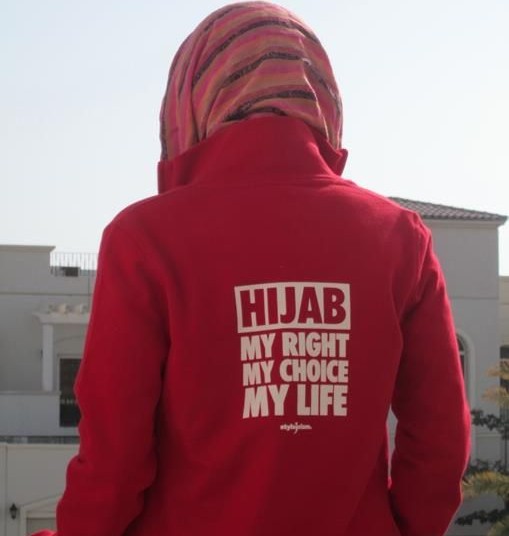What does it mean to be modern? How many inches of clothes are required to be considered a modern, civilised woman? Is being trendy, attractive, fashionable, equal to being modern?
Well, I am quite intrigued by these questions. Because having my voice heard in some social spaces is getting more difficult with each passing day. The reason is quite simple: my attire never matches what people consider the norm for a modern woman. It’s as if I am not modern enough. I am confidently generalised as conservative, narrow-minded and old-fashioned because of the way I dress. And if I am so lucky, I may also get the tagline of being ‘an oppressed woman’, who is advocating for her own captivity. That sounds hilarious!
I experienced a situation when my teachers denied my request to wear the hijab during a small speech. When they found me to be quite adamant about wearing the hijab, they put forward a second option after a discussion: we will talk to your parents, we know why you’re worried. The question was just another way of expressing their notion, that women don’t choose to wear the hijab, they are forced to. It hurt me deeply and thus I replied: ‘No Ma’am. It’s my decision, not my parents’. I ‘chose’ to wear it, I wasn’t forced. And then soon, I was replaced by some other girl. As I left the hall, I kept wondering whether I am living in a secular, democratic nation or not.
As ‘terror’ is a highly profitable marketing tool in the world of media, some signs, clothes and even words having Muslim elements are brandished as terrifying and uncivilised. The ‘purdah’ (veil) or Hijab is one among such zillions of words.
If the word ‘purdah’ (veil) evokes in your minds, an image of fully clad women chained within four walls under the Taliban regime, Iran or Saudi Arabia; then you are gravely wrong. Because, Saudi Arabia is not the perfect political model of Islam and neither is the Taliban, as Islam calls for the separation of state and religion. Moreover, the state-sponsored morality of autocratic regimes goes against the Quran which states that “There is no compulsion in religion” (2:257). Thus, nowhere does Islam accommodate the concept of women being chained within the four walls of their homes as it is proved from its early history.
For me, the true concept of ‘purdah’ (veil) is that which asks both men and women to instil in themselves the values of modesty and righteousness. But, why do I say so? Because, in my opinion, the ‘purdah’ (veil) is not born out of a narrow-minded patriarchal society that subjugates women. The state of women at the time of arrival of Islam or Muhammad stands testimony to this fact. Girls were deemed to bring disgrace such that many ‘proud’ fathers of some tribes, buried them alive. Women were treated worse than animals. Yet, with the arrival of Islam, women were given the right to inheritance, the right to divorce their husbands, and the right to seek education. Women got the freedom to own their bodies and not be left at the mercy of male vulgarity, and thus sexual anarchy came to a sudden halt with a deep emphasis on values.
Moreover, as per my understanding, Islam categorically refutes the patriarchal notion that women must be morally responsible for the whole society. How? By placing the responsibility of hijab on men first, not on women.
“Say to the believing men that they restrain their eyes and guard their private parts. That is purer for them. Surely, Allah is well aware of what they do” [24:31]
This teaching was exemplified by the prophet Muhammad when a woman described as strikingly beautiful approached the Prophet to seek his guidance on some religious matters. Al Fadl began to stare at her because of her beauty. Well, noting this, Prophet Muhammad reached his hand behind, grasped Al Fadl’s chin, and turned his face to the other side so that he could not gaze at her.
So, rather than blaming Islam and making an easy loophole for the oppressive acts and ideologies of misogynistic clerics, autocratic regimes and the biased western media, it’s time that we tear apart their masks and see the vested interests behind their ‘love’ and ‘hate’ towards Islam. It’s time to revive the true Islam by remembering the history of Ayesha- from whom prophet Muhammad asked Muslim men to learn half their faith-the history of Umme Ummarah, the Muslim woman who fought bravely in battles and that of Fathima Al Fihri, the founder of world’s first University, the University of Al Quaraouiyine in Morocco.
At a time when women need to stand as a collective, a final word to some feminists: Every time you try to avoid my voice in your discussions, judging me to be a traditional, conservative woman, you are becoming a by-product of the patriarchal thought that “a woman is what she wears”.
